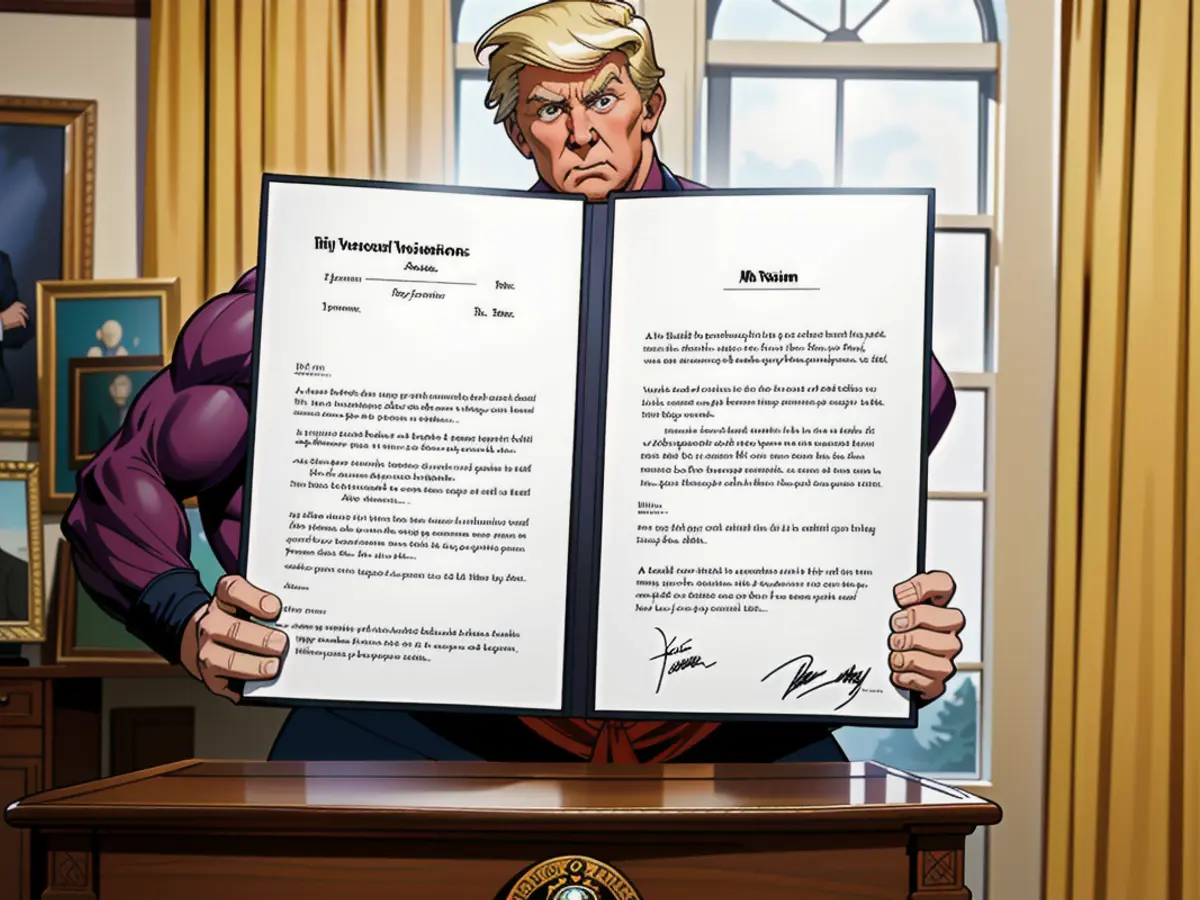Federal Health Institute Resumes Grant Allocations Following Unauthorized Hold
In defiance of some of President Trump's closest allies pushing to blatantly disregard the courts, at least one agency has decided to respect the judicial system's authority - for now. The National Institutes of Health (NIH) broke the news to staff in a memo obtained by Popular Information that they will end the spending freeze imposed by Trump and adhere to restraining orders issued by two federal courts.
The memo, written by NIH Deputy Director for Extramural Research Michael Lauer and NIH Chief Grants Officer Michelle Bulls, instructed the agency's grants management officers that their programs were subject to the recently ordered Temporary Restraining Orders (TROs) issued by the U.S. District Court for the District of Rhode Island and the U.S. District Court for the District of Columbia. As of February 12, the memo specified, it was NIH policy to comply and grant new and continuing grants.
It's worth noting that the first TRO acknowledged by NIH came on January 28. The ruling issued by the court demanded the federal government and its agencies provide notice of their intention to continue spending by no later than the morning of February 3. After that deadline, they were supposed to act in accordance with the order and carry on as usual. So, it appears the NIH was in violation of court orders for roughly a week and a half from January 30 to February 12, as staff were barred from issuing grants during this period.
Not the most promising situation, but it's a step in the right direction. The US District Court for the District of Rhode Island's judge was not amused by the Trump administration's foot-dragging, issuing a second ruling earlier this week that declared the administration was improperly freezing funds and demanded they restore the frozen funding and halt any federal funding pause immediately.
At least, this seems to have prompted NIH to rejoin the workforce. However, the Trump administration has made it clear they will appeal any attempt to hinder their policies, no matter how destructive they may be, and will actively attempt to manipulate and obstruct any enforcement attempts from the judicial branch.
It's a concerning trend, given the importance of upholding norms and adhering to court orders, especially when it comes to the executive branch. A sharp reprimand from the courts might be enough to push NIH back into compliance. Still, it remains unclear if it will stop a willfully defiant president.
Additional Context:
Multiple TROs have been issued against the NIH's funding cuts. Initiated by a federal judge in Massachusetts, Judge Angel Kelley, the TROs halted the implementation of steep cuts to "indirect" costs for university research grants. Lawsuits involving a coalition of 22 states, including Illinois, and five medical organizations, including Boston and New York hospitals, led to these orders.
These TROs applied only within the 22 states, with a nationwide TRO issued in the medical organizations' lawsuit. The NIH's controversial policy change capping "Facilities and Administrative" costs at 15% was called into question, as the average falls between 27 to 28%. Critics argue these cuts could curtail breakthroughs and halt ongoing research projects into diseases like cancer and Alzheimer's.
To complicate matters, Vice President J.D. Vance suggested judges have no ability to challenge the president's legitimate power, sparking concerns of a potential constitutional crisis. Despite this, U.S. District Judge John McConnell insisted that the White House adhere to court orders, deeming the federal funds freeze likely unconstitutional and causing irreparable harm.
Despite the Trump administration's claims of compliance, their handling of court orders has faced criticism. Some officials have indicated a willingness to disregard judicial rulings, while President Trump has stated he would comply with court decisions, even while planning to appeal them. A hearing has been scheduled in Massachusetts' District Court on February 21 to address the NIH funding cuts' legality. The Trump administration can also appeal the TROs, potentially leading to further legal battles.
- Despite the Trump administration's intentions to appeal, the NIH has been instructed to comply with the Temporary Restraining Orders (TROs) and grant new and continuing grants, following the court's deadlines.
- The tech sector, including advanced research and technology, could potentially face significant setbacks if the NIH's funding cuts for university research grants are allowed to stand, as predicted by critics.
- In light of the legal challenges and concerns over constitutionality, some experts have suggested that the future of the NIH's funding policies is uncertain, with a potential for lengthy legal battles ahead.
- The controversy surrounding the NIH's funding cuts and the Trump administration's handling of court orders has sparked debate among legal scholars and political pundits, with some expressing concern over potential restraining actions against future policies.








